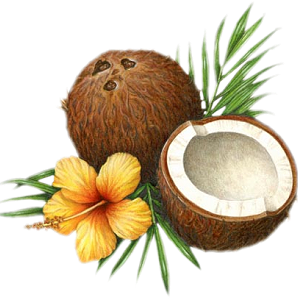 Coconut oil (and coconut milk) is becoming an increasing popular natural supplement among many fitness aficionados. I first read about the potential benefits of coconut products in an article by Mike Mahler, who wrote
Coconut oil (and coconut milk) is becoming an increasing popular natural supplement among many fitness aficionados. I first read about the potential benefits of coconut products in an article by Mike Mahler, who wrote
With regard to fat intake, steroid hormones are derived from saturated fat, so vegans, myself included, need to ensure adequate consumption. I love coconut oil and coconut milk and both are concentrated sources of saturated fat. I use coconut oil for cooking and add coconut milk to protein shakes. Besides saturated fat, coconut contains medium chain triglycerides (MCT), which bypass the liver and are burned directly for energy, excellent for gall bladder issues. Try adding a tablespoon of coconut oil or a quarter cup of coconut milk to your next pre-workout meal (two hours before training) and get ready for an incredible workout.
More recently, Scott Sonnon tweeted, “Added 1 teaspoon of coconut oil to each meal for two weeks and my serratus make a surprise return.”
I’ve been using coconut milk in my pre- and post- workout smoothies for a while now, and recently have been adding coconut oil. While my serratus remains in hiding, I do notice a marked improvement in my performance and recovery.
Coconut oil appears to have benefits unrelated to athletic performs as well. Organic Facts published an interesting list of good things about coconut oil, including “hair care, skin care, stress relief, maintaining cholesterol levels, weight loss, increased immunity, proper digestion and metabolism, relief from kidney problems, heart diseases, high blood pressure, diabetes, HIV and cancer, dental care, and bone strength.”
That’s a pretty impressive list, maybe too impressive. I’m a natural skeptic, so I have my doubts as to if coconut oil can really do all the things listed in this article. Still, I do think there is enough evidence to suggests coconut oil can be a healthful addition to one’s diet.






 My friend and fellow martial artist,
My friend and fellow martial artist, 





